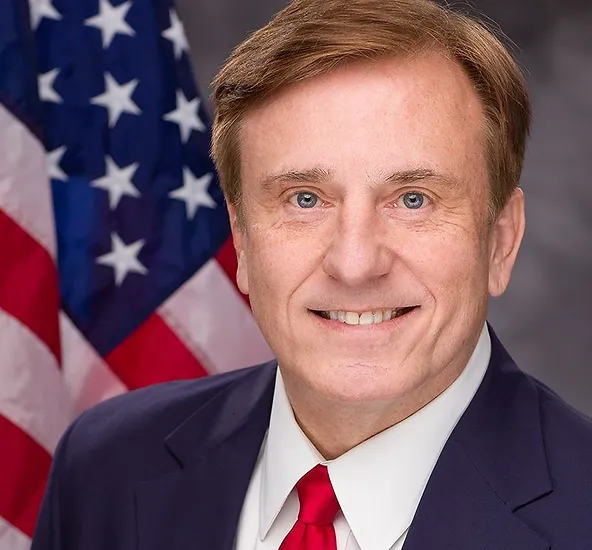In his WWL-TV commentary and several columns, Gambit political editor Clancy DuBos has attacked my decision to not recommend Bank of America as a state fiscal agent. He said it amounts to “cheap political theater.” DuBos refers to Bank of America as “one of the largest financiers of the fossil fuel industry.” In contrast, if Bank of America is so dedicated to the fossil fuel industry, why did it commit to support the end of all carbon emissions by 2050 as a signatory to the United Nations convened Net-Zero Banking Alliance?
The banks in this alliance pledge to “financing ambitious climate action.” In fact, the framework of the organization urges banks to “design, set, and achieve” net-zero targets by 2030 or sooner. Bank of America is also mobilizing $1.5 trillion to address the United Nation’s Sustainable Development Goals, which state that fossil fuel production causes “environmental degradation, climate change, air pollution, and can negatively impact life on land and below water.”
Recent history shows, despite the hype, most “green energy” projects depend on government subsidies to survive. Currently, these projects are not economically viable, and the profitability of these ventures is very uncertain. While the United Nations and Bank of America pursue “climate action,” a reliable source of energy, fossil fuels, has a long history of economic success. In Louisiana, the oil and gas industry has been a major factor in our economy for decades. Historically, this industry delivers approximately 25% of the total revenues for state government.
Today, the oil and gas industry provides 13.1% of the state’s workforce, directly and indirectly, or 346,710 jobs. Our state leads the nation is liquefied natural gas exports and is the third ranked state for marketed natural gas production. One-sixth of the nation’s refining capacity occurs in Louisiana in 15 crude oil refineries.
With such an important industry in Louisiana, it is no surprise that 75% of Louisiana residents support expanded offshore oil and gas drilling in coastal Louisiana. Yet, Bank of America claims that it is a “market leader” in energy transition funding. The bank boasts of being “engaged with clients across the energy spectrum to help them with their energy transition goals.” Unlike Mr. DuBos, Louisiana Governor Jeff Landry certainly understands the risks of this agenda to Louisiana. He said it would force Louisiana into “energy poverty.”
In his comments, Mr. DuBos totally dismisses the actions of Bank of America toward religiousconservatives. Unfortunately, their record of discrimination is very clear. According to the State Financial Officers Foundation (SFOF), Bank of America ranked very low on the Viewpoint Diversity Score Business Index, which rates corporate support for free speech and freedom of religion.
The index uncovered that Bank of America supports gift-matching programs of progressive organizations like the Human Rights Campaign and the Center for American Progress but provides little support for faith-based organizations. This behavior, according to SFOF, exposes their “pattern of internal political and religious bias.”
For example, Bank of America de-banked Indigenous Advance Ministries, a Memphis, Tennessee-based nonprofit that provides charitable activities on behalf of orphaned children in Uganda. The bank closed their accounts for “operating in a business type we have chosen not to service” and for maintaining a “risk profile” which “no longer aligns with the bank’s risk tolerance.”
After months of inquiries, Bank of America claimed the actual reason for the de-banking of their accounts was “debt collection” done by the nonprofit; however, these services only involve one of the three accounts held by Indigenous Advance Ministries. Neither their ministry nor their church is involved in debt collection.
After repeated requests, Bank of America was not able to provide any detailed policy to validate their decision. Seemingly, the rationale for their decision was manufactured and highly questionable. The worst-case scenario should have been for only account to be closed, but all of them were shuttered.
Other religious conservatives targeted by Bank of America, include The Timothy Two Project, which “trains pastors in more than 65 countries around the world” and Christian preacher and broadcaster Lance Wallnau, whose account was frozen. He had to submit to a “complete marketing audit explaining every dollar of our ministry’s budget.” Wallnau said it happened because “Marxist progressives in their upper management were investigating ministries and conservative bloggers or podcasters in order to make sure we weren’t insurrectionist money laundering operations.” Eventually, after “a series of invasive questions” and a full investigation by Bank of America, his account was reinstated.
Mr. DuBos lectured me during his recent on-air editorial on WWL TV by saying that my decision on Bank of America was not a conservative one. He further accused me of being anti-economic development. Mr. DuBos has a widely known reputation of being left-wing and anti-conservative. So, it is quite amusing when liberals, like DuBos, have the hubris to pretend to know better how a conservative should think, obviously wanting to substitute his liberal point of view for one of a proven conservative.
This is reminiscent of the moment President Biden chided an African American radio host by saying that if he didn’t vote for him (Biden), he wasn’t black, meaning that being black meant that Biden should do the thinking for him. On the question of economic development, apart from creating 350 permanent private sector jobs in Louisiana, I led the federal Economic Development Administration during the pandemic. What are Mr. DuBos’ economic development credentials?
Sorry, Mr. DuBos, this is not “cheap political theater.” My actions are based on Bank of America’s verifiable pattern of discriminatory behavior. Their actions are not only detrimental to religious conservatives, but also to the economic interests of the people of Louisiana. For those valid reasons, I stand by my decision not to recommend that Bank of America become a fiscal agent in the State of Louisiana.





